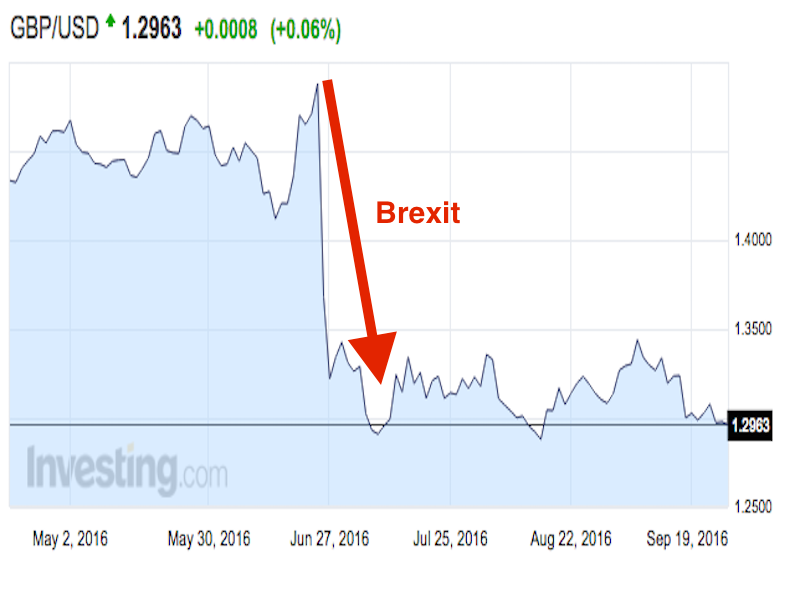The British pound has tumbled back to near Brexit lows.
The currency recovered some of its losses from earlier in the morning, and is now little changed at 1.2963 against the dollar as of 12:31 p.m. ET.
Still, that’s not that far off of the post-Brexit low of 1.2798.
Separately, a new KPMG survey found that just over three-quarters of the 100 CEOs surveyed were considering relocating their companies because of the Brexit vote. (72% of those surveyed also said they voted Remain.)
“CEOs are reacting to the prevailing uncertainty with contingency planning. Over half believe the UK’s ability to do business will be disrupted once we Brexit and therefore, for many CEOs, it is important that they plan different scenarios to hedge against future disruption,” Simon Collins, KPMG’s UK chairman, said in an emailed statement.
"In our own work, we have seen international clients who had been considering basing European headquarters in the UK, opt for Ireland instead."
As for the rest of the world, here's the scoreboard as of 12:34 p.m. ET:
- The euro is up 0.2% at 1.253 against the dollar after Germany's Ifo Business Climate came in at 109.5 for September, above economists' expectations of 106.3. This was the highest level since May 2014. "The German economy is expecting a golden autumn," Professor Dr. Clemens Fuest, the president of the Ifo Institute, wrote in the report. The US dollar index is down 0.2% at 95.28. Earlier, new home sales tumbled less than expected in August. Additionally, Business executives in Texas said the US economy is still a "big concern." The Russian ruble is up 0.3% at 63.8596 per dollar. Meanwhile, Brent crude oil, the international benchmark, is higher by 3.1% at $47.94 per barrel as oil producers meet in Algiers for informal talks. The Japanese yen is stronger by 0.6% at 100.37 per dollar. Notably, Bloomberg reported that Eisuke Sakakibara, Japan's former top currency official, argued that the yen could strengthen to 90 per dollar next year.

